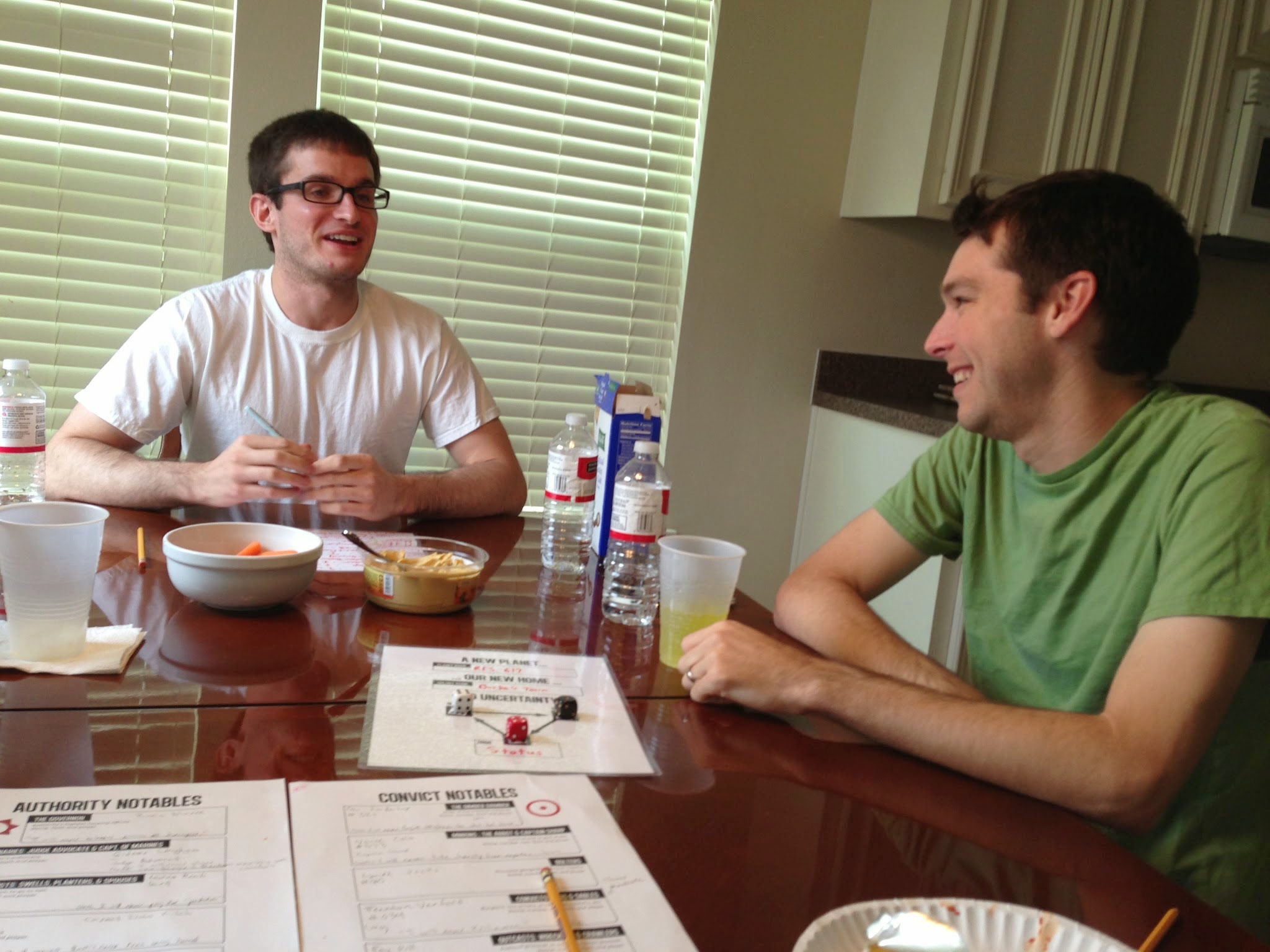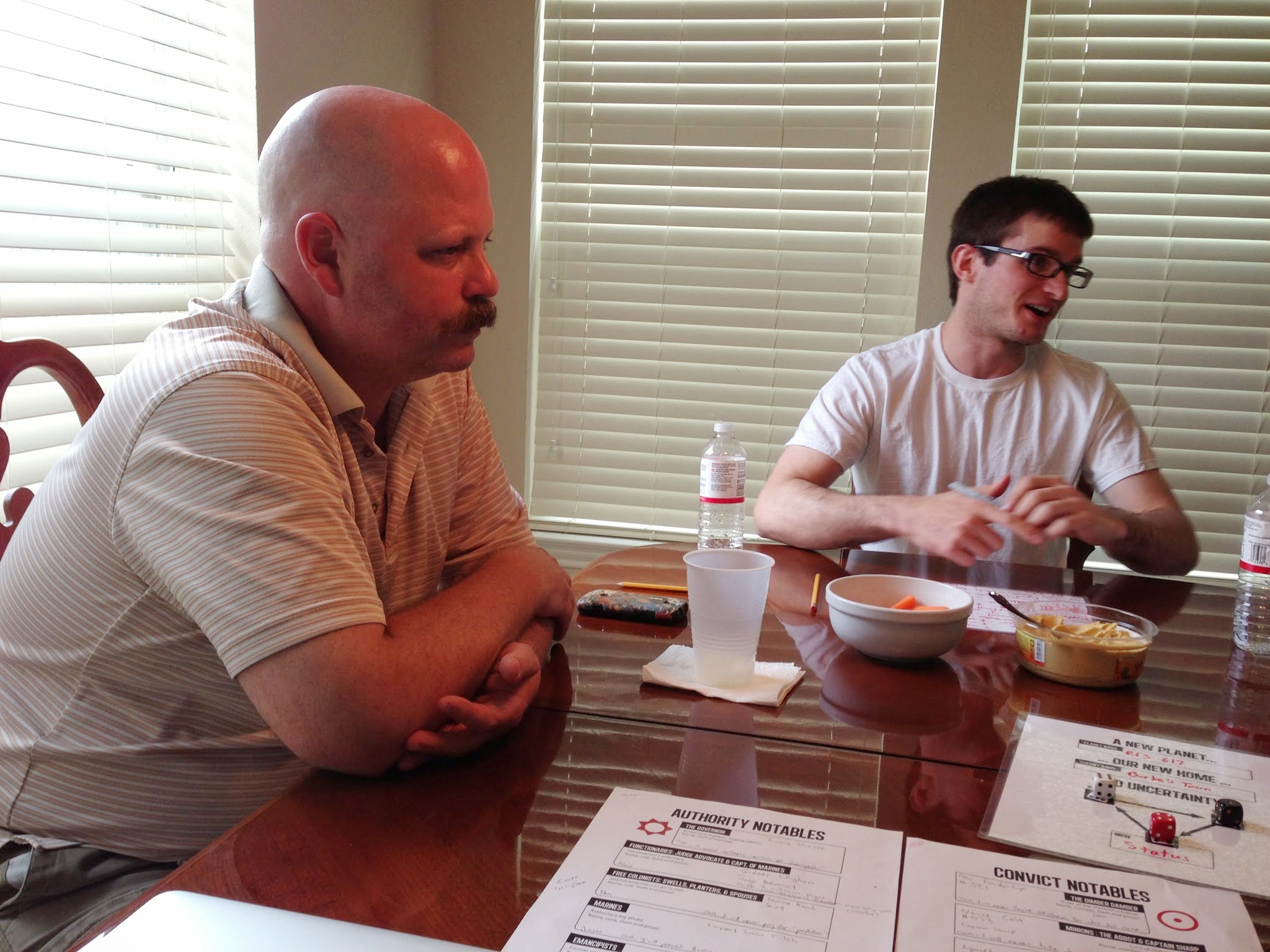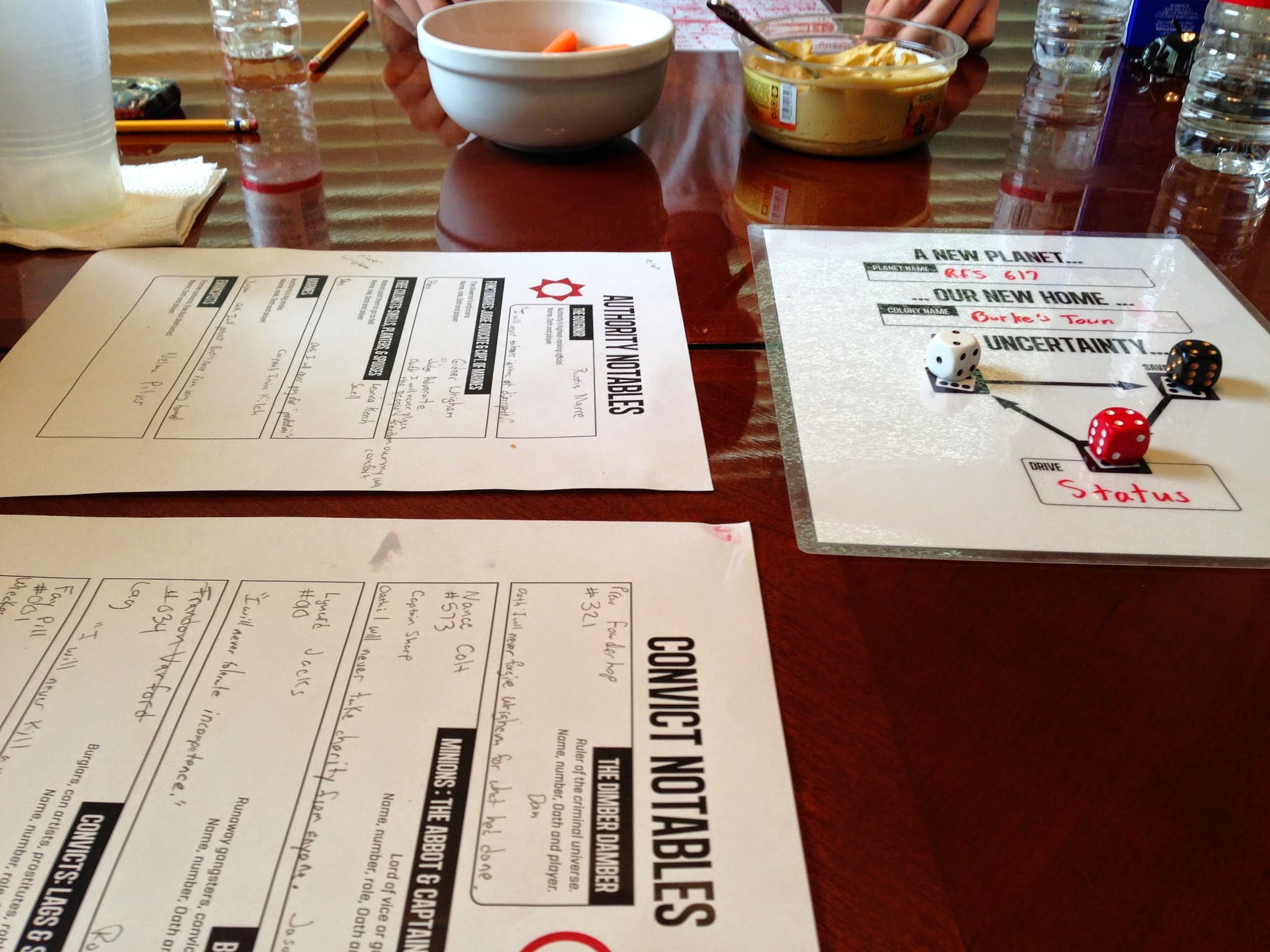Durance today was a rare misfire. The game flew off the rails almost immediately. We spent a fair amount time afterwards trying to figure out what happened. I have very conflicted feelings about the whole thing, and I’d like to share them.
So, right off the bat: Jason Morningstar has written games that have been some of the most fun I’ve had in gaming. Fiasco and Shab al-Hiri Roach, for example, have created some truly dynamite experiences at the table over the last few years. And I was prepared to love Durance.
But man oh man…this game is tough. First of all, we felt pretty bogged down by the large number of characters that have to be managed. Second, the flow of the story felt greatly impeded by the need to a) think of a good question to be the focus of every scene and b) to constantly reassess where the story was going. Overall, the whole experience felt clunky.
I am ready to admit we were probably doing some things wrong. Our questions were probably not as drilled-down as they needed to be. I don’t think we really understood how the conflict resolution system worked (or, at least, we were trying to get it to do things it was not intended to do). There were so many moments where we were literally at an impasse at the end of a scene, with no mechanics to help get us out. With Fiasco, it’s so much more clear: you have one character in the spotlight who either will or will not succeed.
The part I’m conflicted about is this: is it worth trying to figure out? Daniel Lewis and Alexander Hay felt like the game might be irredeemable; that even if we got things ironed out, would it be fun enough to justify the effort? Rob Ferguson loves the game. He had played it before and had a blast with it. I think I’m somewhere in the middle. I have a lot of experience with story games, and so it frustrates me that Durance got the best of me.
We universally agreed the setting and the set-up procedure are terrific. The book is beautiful. The whole package is very thoughtful in many ways. It’s the gameplay that is an open question at this point.






The lamination was fantastic!
The lamination was fantastic!
And it was better than spending the afternoon talking to my dog, although he does occasionally have some very insightful comments (or are they inciteful?).
And it was better than spending the afternoon talking to my dog, although he does occasionally have some very insightful comments (or are they inciteful?).
Not sure I’d say it’s irredeemable, but I do think it’s doubtful that I would ever like it as much as fiasco.
I wonder if adding a house rule might help. Something like “the scene the guide sets has to be a result of the actions of one of his own characters.” So you would declare something that your character has done, say how it is affecting another character, then it’s up to them to decide how their character responds.
Seems like at the very least, it would let you be responsible for making sure that your own characters have a part to play, avoiding the problem that I had with none of my characters actually being involved in the plot.
Not sure I’d say it’s irredeemable, but I do think it’s doubtful that I would ever like it as much as fiasco.
I wonder if adding a house rule might help. Something like “the scene the guide sets has to be a result of the actions of one of his own characters.” So you would declare something that your character has done, say how it is affecting another character, then it’s up to them to decide how their character responds.
Seems like at the very least, it would let you be responsible for making sure that your own characters have a part to play, avoiding the problem that I had with none of my characters actually being involved in the plot.
Daniel Lewis That’s something I forgot about: there were a number of characters that simply had no interesting role to play. And trying to shoehorn them into a scene felt artificial and time-consuming.
You know, it could just be that we wanted to play Fiasco. 4 characters, guaranteed spotlight for those characters, and straightforward scene resolution.
Daniel Lewis That’s something I forgot about: there were a number of characters that simply had no interesting role to play. And trying to shoehorn them into a scene felt artificial and time-consuming.
You know, it could just be that we wanted to play Fiasco. 4 characters, guaranteed spotlight for those characters, and straightforward scene resolution.